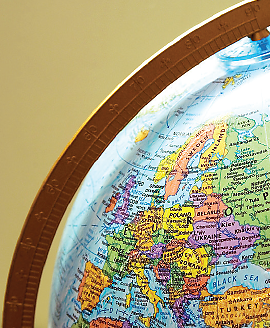In keeping with its commitment to have APA become more involved in international issues and to encourage international psychiatrists to see the benefits of membership, the APA Board of Trustees voted at its October meeting in Philadelphia to establish a Global Psychiatry Council.
The Board’s International Psychiatry Work Group recommended the formation of the council following the May 2012 passage by the APA Assembly of an action paper stressing the need for such a component as issues of international membership, research, advocacy, and education arise. APA previously had a similar council—the Council on Global Psychiatry—that was sunsetted in 2009.
The work group’s chair, former APA President Michelle Riba, M.D., told Psychiatric News that the Board’s vote “reflects APA’s strong interest and goals to develop programs and align with colleagues throughout the world on mental health issues. Past President Dilip Jeste set up the work group so that we could review what would be needed in APA’s structure to help move the important agenda about global health in the area of education, public policy, improving research, and public mental health. We also appreciate the support of current President Jeffrey Lieberman to extend the work group so that we were able to help bring the action of setting up the council to the Board.” Riba is secretary for scientific publications of the World Psychiatric Association (WPA) and a former zonal representative from APA to the WPA.
While the specific charge of the new council has not yet been finalized, it will likely deal with a broad range of international and cross-cultural issues related to global mental health, clinical care, psychiatric training, scientific research, and public education about mental illness and its treatment. The new council is expected to begin its work next May.
At the end of October, 93 countries were represented among APA’s nearly 1,500 international members and 63 international distinguished fellows. The largest contingent—189 psychiatrists—is from the Netherlands, followed by Brazil, Australia, India, and the United Kingdom. About 150 psychiatrists have applied for the newly established category of international fellow, and their names will come to the Board of Trustees for approval in December.
While international members cannot vote in APA elections, they have online access to APA journals and receive the same discounts on American Psychiatric Publishing products, annual meeting registration, and online courses as do members in the United States and Canada. ■

